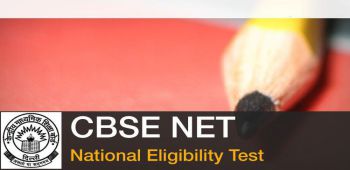At the senior secondary level students who opt Political Science are given an opportunity to get introduced to the diverse concerns of a Political Scientist. At this level there is a need to enable students to engage with political processes that surround them and provide them with an understanding of the historical context that has shaped the present. The different courses introduce the students to the various streams of the discipline of Political Science: Political Theory, Indian Politics and International Politics. Concerns of the other two streams - Comparative Politics and Public Administration- are accommodated at different places in these courses. In introducing these streams, special care has been taken not to burden the students with the current jargon of the discipline. The basic idea here is to lay the foundations for a serious engagement with the discipline at the under graduation stage.
Details of Units and their weightage in CBSE 12th Political Science board exam 2018 – 19
|
Unit No. |
Name of Units (Periods) |
Marks |
|
Part A: Contemporary World Politics |
|
|
|
1 |
Cold War Era (14) |
14 |
|
2 |
The End of bipolarity (13) |
|
|
3 |
US Hegemony in World Politics (13) |
16 |
|
4 |
Alternative centres of Power (11) |
|
|
5 |
Contemporary South Asia (13) |
|
|
6 |
International Organizations (13) |
10 |
|
7 |
Security in Contemporary World (11) |
|
|
8 |
Environment and Natural Resources (11) |
10 |
|
9 |
Globalisation (11) |
|
|
|
Total (110) |
50 |
|
Part B: Politics in India since Independence |
|
|
|
10 |
Challenges of Nation-Building (13) |
16 |
|
11 |
Era of One-party Dominance (12) |
|
|
12 |
Politics of Planned Development (11) |
|
|
13 |
India's External relations (13) |
6 |
|
14 |
Challenges to the Congress System (13) |
12 |
|
15 |
Crisis of the Democratic Order (13) |
|
|
16 |
Rise of Popular Movements (11) |
16 |
|
17 |
Regional aspirations (11) |
|
|
18 |
Recent Developments in Indian Politics (13) |
|
|
|
Total (110 Periods) |
50 |
Course Contents
Part A: Contemporary World Politics
- Cold War Era
Emergence of two power blocs after the second world war. Arenas of the cold war.
Challenges to Bipolarity: Non Aligned Movement, quest for new international economic order.
India and the cold war.
- The End of Bipolarity
New entities in world politics: Russia, Balkan states and Central Asian states, Introduction of democratic politics and capitalism in post-communist regimes. India's relations with Russia and other post-communist countries.
- US Hegemony in World Politics
Growth of unilateralism: Afghanistan, first Gulf War, response to 9/11 and attack on Iraq. Dominance and challenge to the US in economy and ideology. India's renegotiation of its relationship with the USA.
- Alternative Centres of Power
Rise of China as an economic power in post-Maoera, creation and expansion of European Union, ASEAN. India's changing relations with China.
- Contemporary South Asia in the Post-Cold War Era
Democratisation in Pakistan and Nepal. Ethnic conflict in Sri Lanka, Impact of economic globalization on the region. Conflicts and efforts for peace in South Asia. India's relations with its neighbours.
- International Organizations
Restructuring and the future of the UN. India's position in the restructured UN. Rise of new international actors: new international economic organisations, NGOs. How democratic and accountable are the new institutions of global governance?
- Security in Contemporary World
Traditional concerns of security and politics of disarmament. Non-traditional or human security: global poverty, health and education. Issues of human rights and migration.
- Environment and Natural Resources
Environment movement and evolution of global environmental norms. Conflicts over traditional and common property resources. Rights of indigenous people. India's stand in global environmental debates.
- Globalisation
Economic, cultural and political manifestations. Debates on the nature of consequences of globalisation. Anti-globalisation movements. India as an arena of globalization and struggle against it.
Part B: Politics in India since Independence
- Challenges of Nation- Building
Nehru's approach to nation-building; Legacy of partition: challenge of 'refugee' resettlement, the Kashmir problem. Organisation and reorganization of states; Political conflicts over language.
- Era of One-Party Dominance
First three general elections, nature of Congress dominance at the national level, uneven dominance at the state level, coalitional nature of Congress. Major opposition parties.
- Politics of Planned Development
Five year plans, expansion of state sector and the rise of new economic interest. Famine and suspension of five year plans. Green revolution and its political fallouts.
- India's External Relations
Nehru's foreign policy. Sino-Indian war of 1962, Indo-Pak war of 1965 and 1971. India's nuclear programme. Shifting alliance in world politics.
- Challenges to the Congress System
Political succession after Nehru. Non-Congressism and electoral upset of 1967, Congress split and reconstitution, Congress' victory in 1971 elections, politics of 'garibi hatao'.
- Crisis of the Democratic Order
Search for 'committed' bureaucracy and judiciary. Navnirman movement in Gujarat and the Bihar movement. Emergency: context, constitutional and extra-constitutional dimensions, resistance to emergency. 1977 elections and the formation of Janata Party. Rise of civil liberties organisations.
- Popular Movements in India
Farmers' movements, Women's movement, Environment and Development-affected people's movements. Implementation of Mandal Commission report and its aftermath.
- Regional Aspirations
Rise of regional parties. Punjab crisis and the anti Sikh riots of 1984. The Kashmir situation. Challenges and responses in the North East.
- Recent Developments in Indian politics
Participatory upsurge in1990s. Rise of the JD and the BJP. Increasing role of regional parties and coalition politics. Coalition governments:
NDA (1998 - 2004)
UPA (2004 - 2014)
NDA (2014 onwards)
Prescribed Books:
(1) Contemporary World Politics, Class XII, Published by NCERT
(2) Politics in India since Independence, Class XII, Published by NCERT
Note: The above textbooks are also available in Hindi and Urdu versions.
Tips:
- Understand the syllabus thoroughly so you know exactly what to study.
- Study from your notes in addition to the textbooks; teachers know important points and will have included them in your notes.
- Use the first reading to understand the information and then subsequent readings to remember the information.
- Write short notes on the important topics in your own words, this will help you understand and remember the answers.
- Go through plenty of previous year question papers and sample papers. This will act as an aid to know the question paper pattern and also the questions that are repeating in many sets ought to repeat this year too.
- Try Group study. Studying in a group will help keep your interest in otherwise dull topics. Go into the details of a topic while studying in a group. It will help create a clearer picture.
- Use flashcards to remember definitions. Flashcards make it very simple and convenient to go through the topic.
- Arrange self test taking sessions. Some people face a problem of not finishing the answers within the given timeframe. To avoid this, practice test papers within the time frame you will have at the examination.
- Define weak points and work on them. Figure out the topics that are harder to understand or learn and try doing them first. This helps in completion of a difficult portion and leaves time for easy parts to be done later.
- Clear out all the doubts from your teacher before appearing for the exam. Leave no space for the examiner to question your content.
- Develop confidence. Nervousness and anxiety may cause you to answer questions incorrectly even if you know the answer. Therefore, be confident while attempting the exam.
- Sleep well a night before the exam. It keeps the body and mind fresh to sit in the exam hall.
Use these tips and tricks, along with healthy diet and exercise to pass with flying colors at your CBSE Class 12th Political Science exam.




















Comments